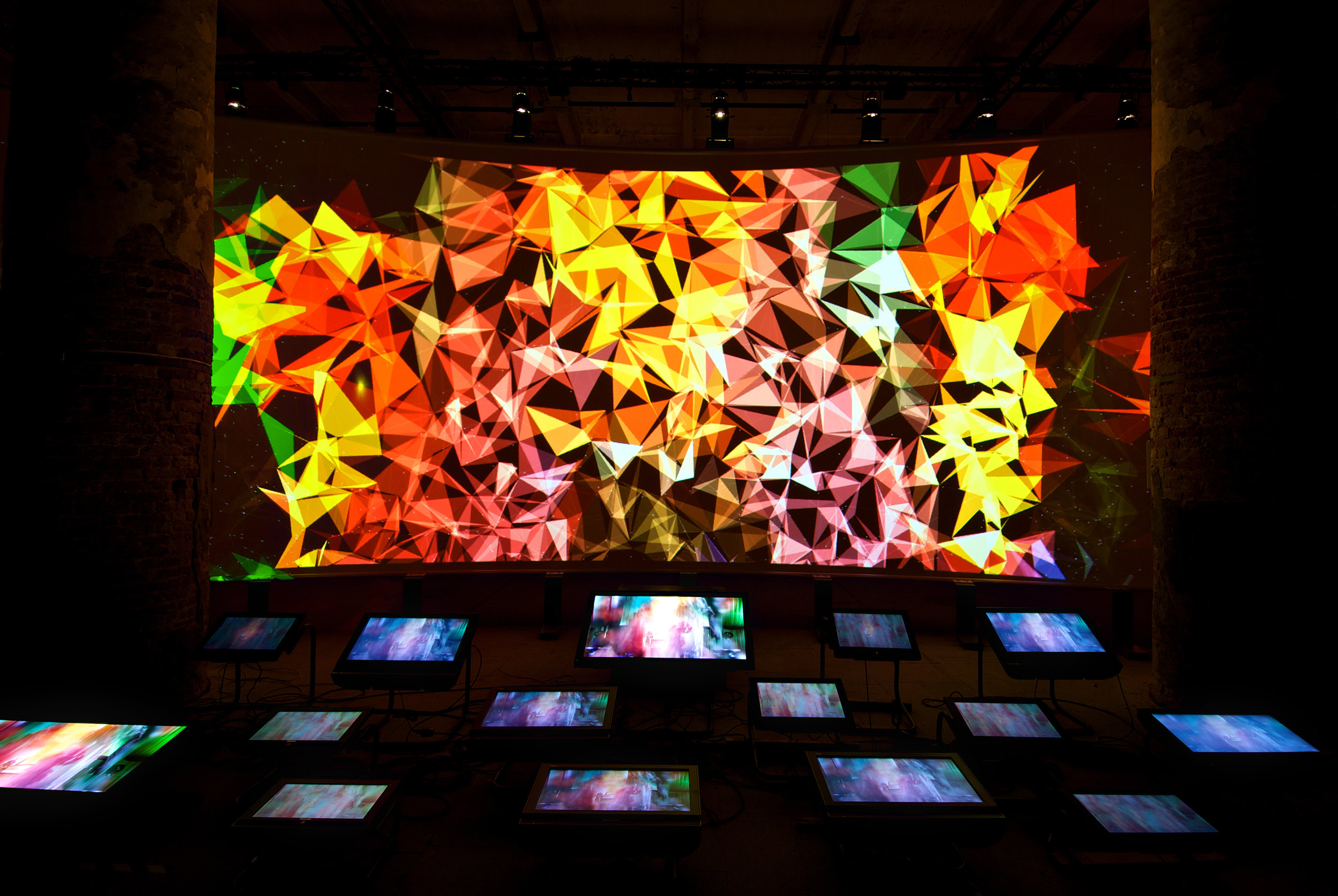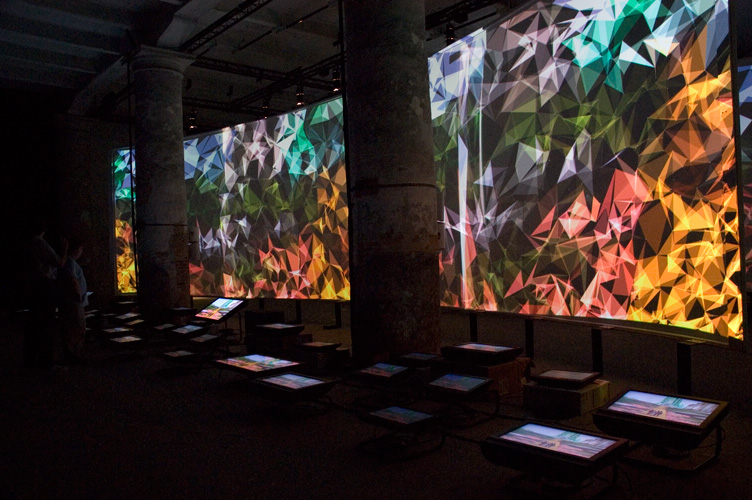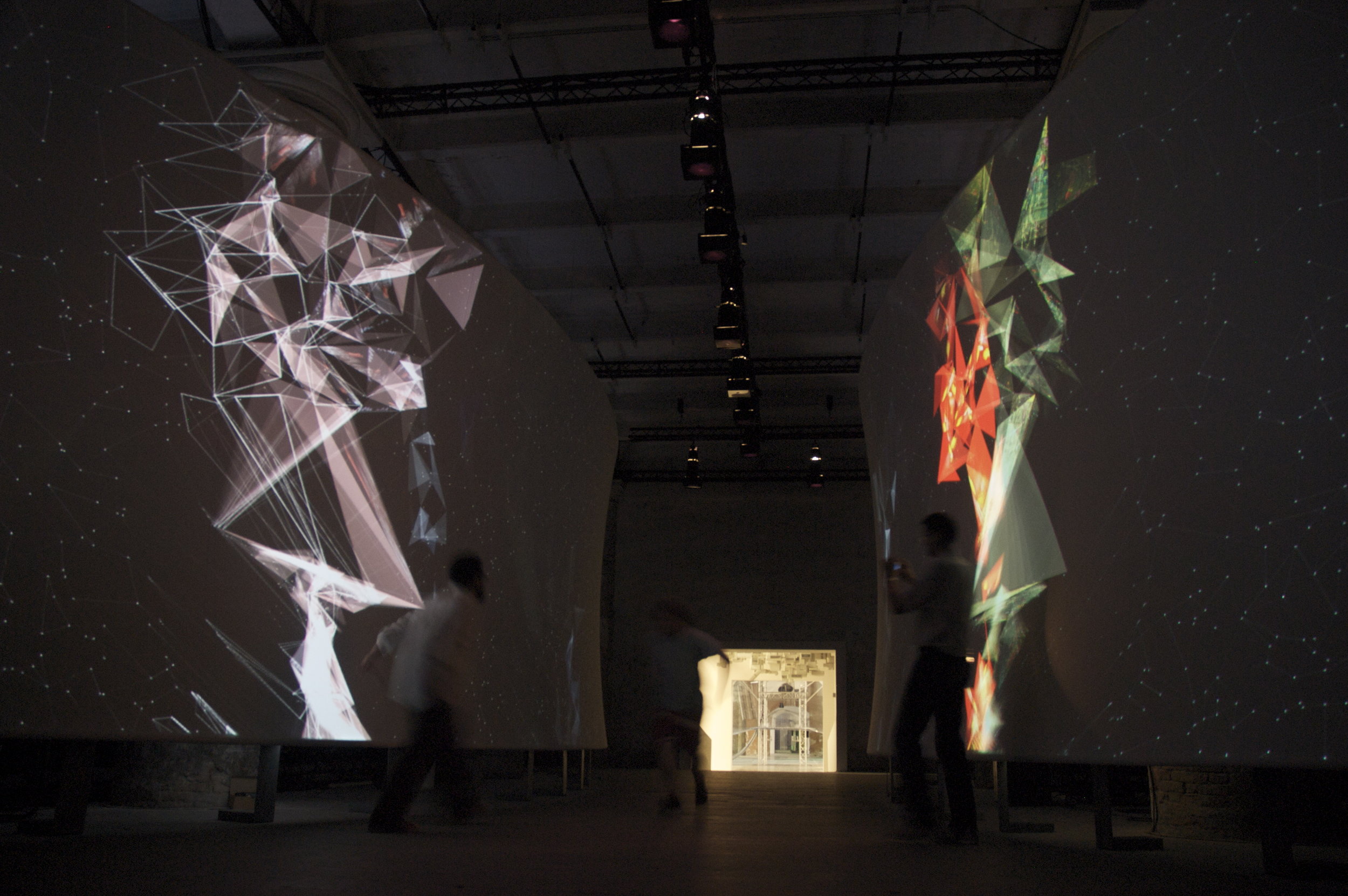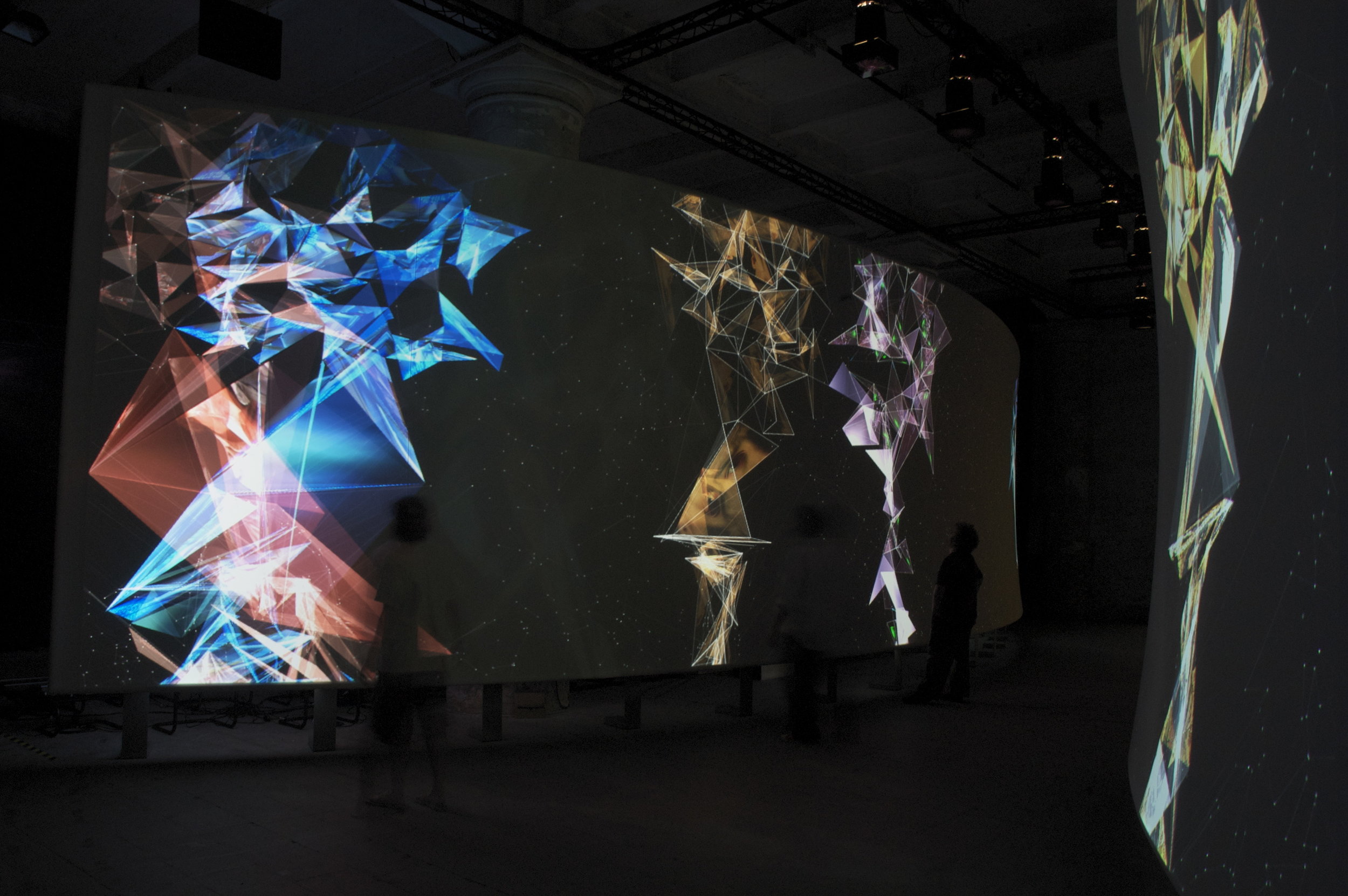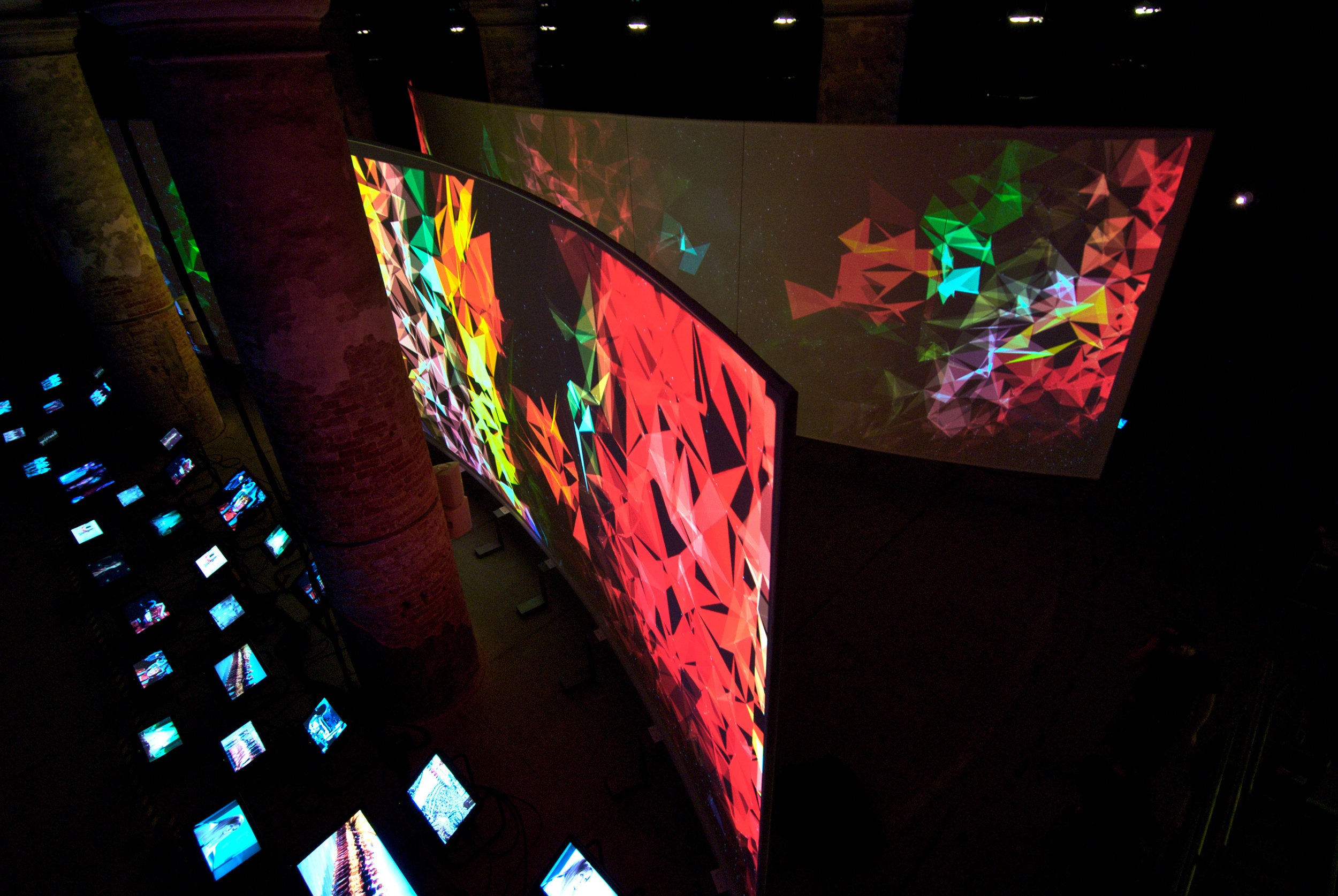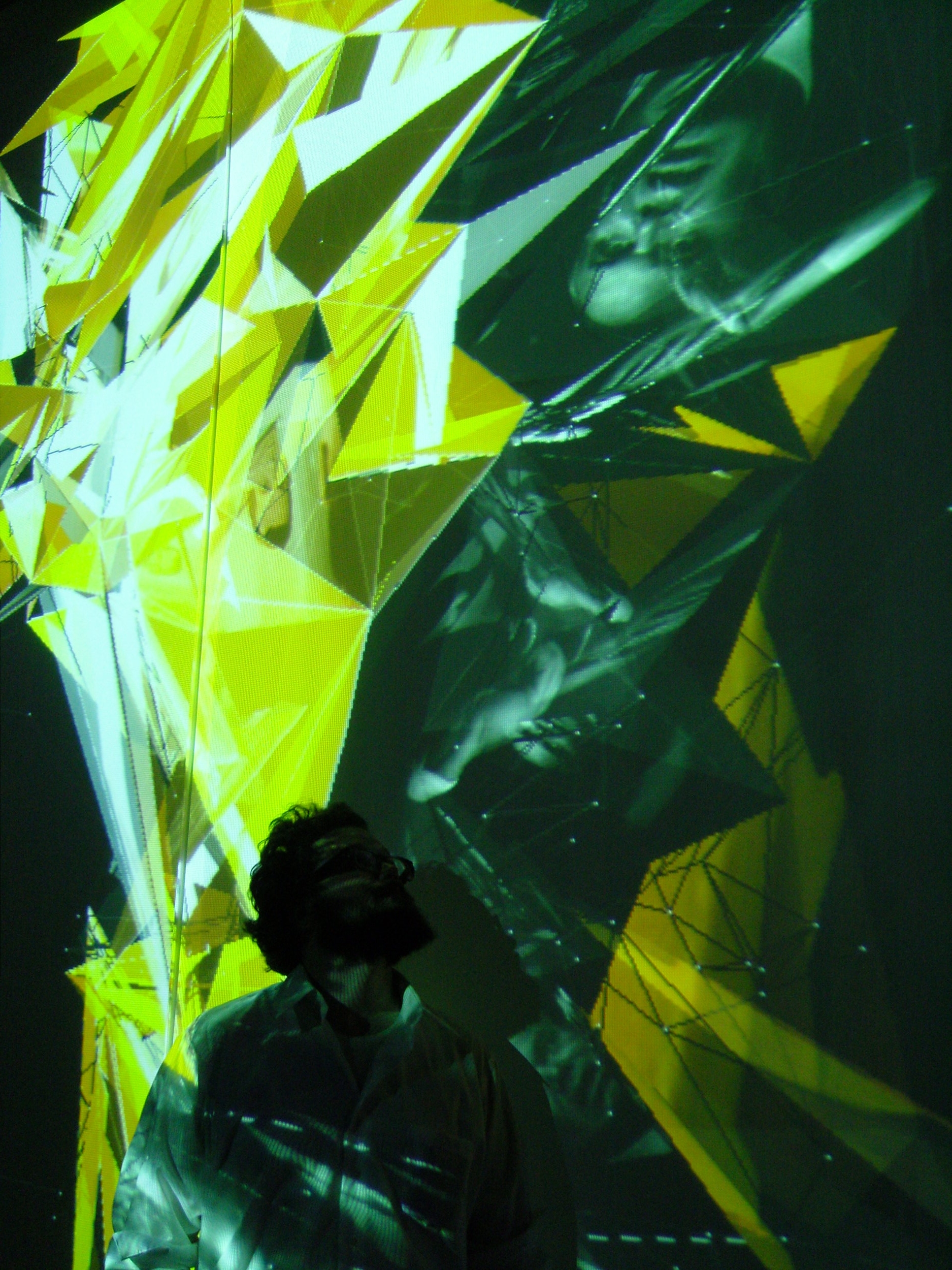Venice Biennale: Hall of Fragments
Rockwell Group, in collaboration with Jones + Kroloff, designed “Hall of Fragments,” the entrance installation to “Out There: Architecture Beyond Building,” the main exhibition for the 2008 11th annual Venice Architecture Biennale.
Hall of Fragments
As part of a collaboration between the Rockwell Group and Jones | Kroloff we were asked to construct the entrance exhibit to the 2008 Architecture Biennale. The Rockwell Group describes the project:
"Cinema constructs alternate architectural universes, places where designers can create environments that are free from the material and gravitational restraints of corporeal life. Bullets can be dodged, tall buildings leapt in a single bound, and houses dropped on unsuspecting witches with no damage to the young girl inside. This is truly architecture beyond building, a place bound only by imagination and the limits of projection technology. This interactive installation sets the stage for “Architecture Beyond Building” by exploring how cinema’s freedom from physical restraints influences perception and behavior. The immersive environment is built of images from iconic films, presented in a manner where the visitor’s behavior influences, or authors, the cinema experience: The motion of inhabitants dynamically affects the sound and imagery on two curving screens – in a real-time simulacrum of the feedback loop between cinema and architecture."
-Rockwell Group
Architecture Beyond Building
Passage through the installation disengages visitors from the bricks and mortar of Venice and connects them to the alternative world of “Architecture Beyond Building” through a immersive and interactive environment constructed from iconic films. The diagram above explains the interplay between the films, the televisions, and the projected architecture created by the interaction.
Sampling
As guests move through the space, samples are cut from the films on the televisions and brought into the projection to be drawn as columns which move with the guest through the passage.
"As the visitors move between the screens, images from films will appear in a cascade of crystalline fragments. Based on algorithms coupled with motion sensor devices, a visitor can make film fragments grow into columns of three-dimensional textures, whose shapes may expand and overlap those from other visitors to create larger figures and infinite variations. Backstage, behind each screen, visitors find a pool of smaller screens monitoring the 30 film clips that feed the content of the installation. Each visit, each movement will create a distinctive architectural experience of a familiar set of images. Those architectures are not prescriptive. They instead offer opportunities."
- Rockwell Group
Architectural Model used for the installation.
Example crystalline construction made from the films.
More information at https://www.rockwellgroup.com/projects/hall-of-fragments



